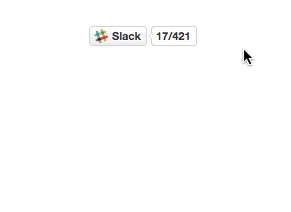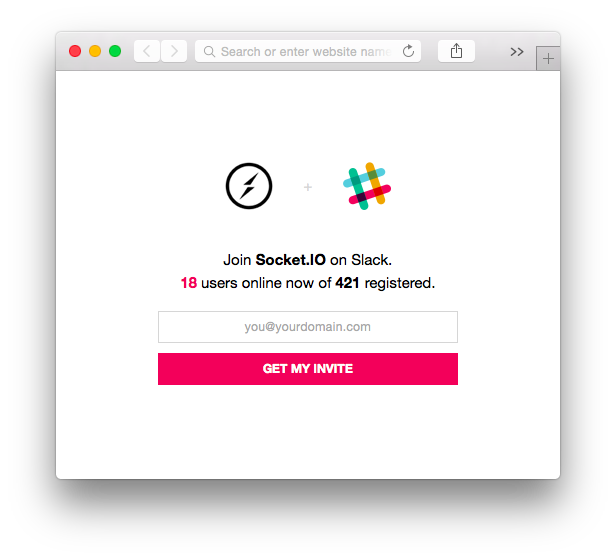A little server that enables public access to a Slack server. Like Freenode, but on Slack.
It prompts users to join by emailing them an invite to your organization (all of it or just one guest channel) through the Slack API.
You get:
- A landing page you can point users to
(
http://slack.yourdomain.com) - An
<iframe>badge to embed on any website that shows connected users in realtime with socket.io. - A SVG badge that works well from static mediums (like GitHub README pages)
deploy to heroku button here
To launch it:
$ npm install -g slackin
$ slackin --token "token" --org socketioThe available options are:
--port [port]– What port to bind to (defaults to3000)--token [token](required) – API token for your org. Get it here.--org [org](required) – Organization subdomain (//this.slack.com)--channel [chan]– If you want users to join just one guest channel within your organization, provide it.--silent- If provided, no errors or warnings are printed out.
<script async defer src="http://slackin.yourhost.com/slackin.js"></script>or for the large version, append ?large:
<script async defer src="http://slackin.yourhost.com/slackin.js?large"></script><img src="http://slackin.yourhost.com/badge.svg">Point to http://slackin.yourhost.com.
Note: the image for the logo of the landing page is retrieved from the Slack API. If your organization doesn't have one configured, it won't be shown.
Requiring slackin as a module will return
a Function that creates a HTTP.Server instance
that you can manipulate.
require('slackin')({
token: 'yourtoken', // required
interval: 1000,
org: 'your-slack-subdomain', // required
channel: 'channel' // for single channel mode,
silent: false // suppresses warnings
}).listen(3000);This will show response times from Slack and how many online users you have on the console.
By default logging is enabled.
- The SVG badge generation was taken from the excellent shields project.
- The button CSS is based on github-buttons.
MIT


